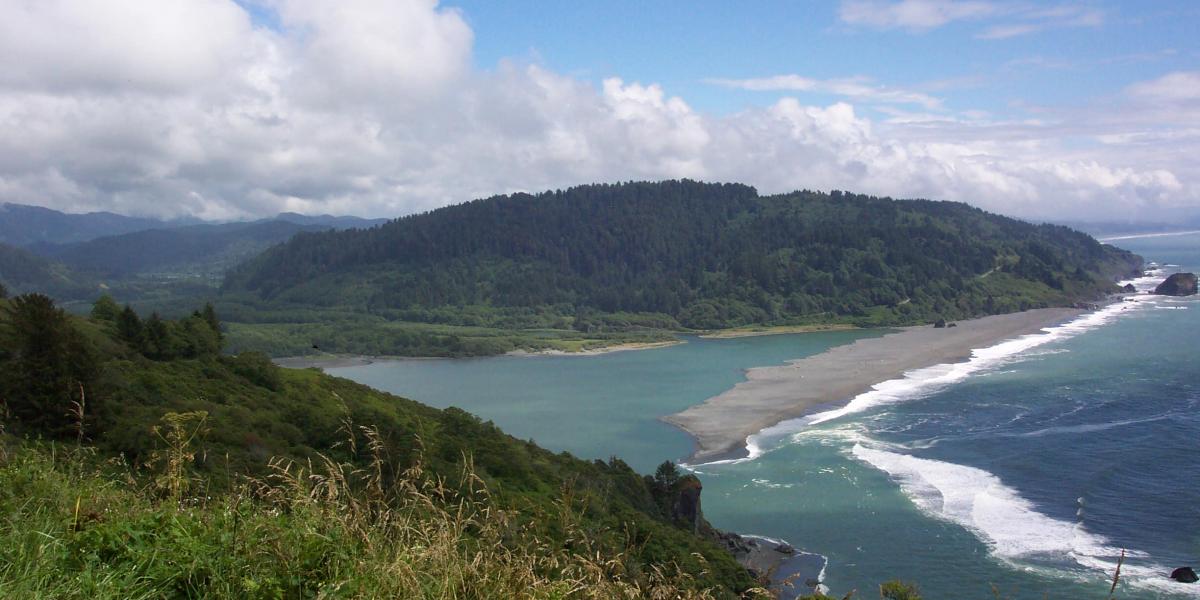
- Details
- By Native News Online Staff
The U.S. Department of the Interior announced nearly $46 million in investments on Wednesday, made possible by President Biden’s Bipartisan Infrastructure Law, aimed at addressing critical water-related challenges in the Klamath Basin across southern Oregon and northern California.
In February, the Department unveiled a significant agreement involving the Klamath Tribes, Yurok Tribe, Karuk Tribe, and the Klamath Water Users Association, focusing on collaborative efforts to restore the Klamath Basin ecosystem and enhance water supply reliability for local agriculture. The funding announced today will support 24 restoration projects developed by the agreement's signatories, alongside other Tribes and conservation partners.
“President Biden’s Investing in America agenda is funding restoration projects that will provide lasting ecological solutions, critical habitat restoration needed for threatened and endangered species, and agriculture resilience for the Klamath Basin,” said Secretary Deb Haaland. “With the help of our partners in the basin, our shared commitment to protecting this ecosystem will benefit the watersheds, agriculture, forests and abundant populations of species that call this landscape home.”
“It’s inspiring to help advance our efforts to achieve a drought-resilient and restored ecosystem in this region,” said Service Director Martha Williams. "I am grateful for the work with Tribes and many partners to collectively choose projects focused on holistic solutions in the basin that will continue for many generations to come.”
Under President Biden’s Investing in America agenda, the Department is implementing over $2 billion in investments to restore the nation’s lands and waters. To guide these historic initiatives and support the President’s America the Beautiful initiative, the Department has introduced the Restoration and Resilience Framework, which facilitates coordination across agency programs and aims for transformative outcomes. This includes a focus on collaborative restoration efforts in the Klamath Basin through the Klamath Keystone Initiative, engaging ranchers, state and local governments, Tribal nations, and other stakeholders to bolster ecological resilience.
Through the Bipartisan Infrastructure Law, the Service is allocating a total of $162 million over five years to restore the Klamath region’s ecosystem and revitalize local economies. These investments will ensure reliable water for national wildlife refuges, advance salmon restoration following dam removals, tackle water quality and conveyance challenges, and support co-developed projects with Tribes, farmers, ranchers, and conservation partners.
Among today’s investments, $13 million will complete the restoration of the Agency-Barnes wetland units within the Upper Klamath National Wildlife Refuge, enhancing fish habitat access in Fourmile and Sevenmile creeks. Spanning 14,356 acres, this restoration will create crucial habitat for waterfowl and federally endangered species such as the Lost River and shortnose suckers, marking it as one of the largest wetland restoration efforts in the U.S.
Additional projects announced will focus on developing and restoring wetlands, shorelines, and native habitats around Lake Ewauna, Link River, Tule Lake, Scott River, and the upper Williamson River.
A comprehensive project list is available on the U.S. Fish and Wildlife Service’s website. To learn more about the Bipartisan Infrastructure Law's impact in the Klamath Basin, listeners can tune into the Service’s Nature’s Infrastructure podcast or explore funded restoration projects through an interactive StoryMap.
For further details on Bipartisan Infrastructure Law investments, refer to the Service’s annual report and the Klamath Basin photo gallery.
More Stories Like This
Native News Weekly (August 25, 2024): D.C. BriefsNavajo Nation Mourns the Passing of Former Vice President Rex Lee Jim
Deb Haaland Earns Endorsement From Communications Workers of America Local 7076
University Soccer Standout Leads by Example
Two Native Americans Named to Democratic Congressional Campaign Committee's“Red to Blue” Program
Help us defend tribal sovereignty.
At Native News Online, our mission is rooted in telling the stories that strengthen sovereignty and uplift Indigenous voices — not just at year’s end, but every single day.
Because of your generosity last year, we were able to keep our reporters on the ground in tribal communities, at national gatherings and in the halls of Congress — covering the issues that matter most to Indian Country: sovereignty, culture, education, health and economic opportunity.
That support sustained us through a tough year in 2025. Now, as we look to the year ahead, we need your help right now to ensure warrior journalism remains strong — reporting that defends tribal sovereignty, amplifies Native truth, and holds power accountable.
 The stakes couldn't be higher. Your support keeps Native voices heard, Native stories told and Native sovereignty defended.
The stakes couldn't be higher. Your support keeps Native voices heard, Native stories told and Native sovereignty defended.
Stand with Warrior Journalism today.
Levi Rickert (Potawatomi), Editor & Publisher


